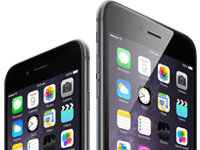10 INVESTIGATIVE careers you could consider
by StudyMalaysia on October 7, 2016 | Top Stories, Career Guide

Have you ever wondered why your career counsellor makes you answer questions about what you like (or don’t like) doing? Have you ever filled out a questionnaire that helped reveal your personality? Well, according to Holland, people who need help with career decisions can be supported by understanding their similarity to the following six vocational personality types:
- Realistic (R)
- Investigative (I)
- Artistic (A)
- Social (S)
- Enterprising (E)
- Conventional (C)
In this second instalment of a six-part article, we explore 10 careers for each of these six personality types.
Don't know your personality type? You can find out using one of many free online personality tests. Here are a few you can choose from.
This test consists of 48 statements that you will have to rate by how much you would enjoy doing.
Prefer pictures to words? Take this test.
INVESTIGATIVE
Investigative individuals are analytical, intellectual and observant. They enjoy research, mathematical or scientific activities. They are drawn to ambiguous challenges and may be stifled in highly structured environments. People who fall into this category enjoy using logic and solving highly complex, abstract problems. Because they are introspective and focused on creative problem solving, investigative types often work autonomously and do not seek leadership roles. They place a high value on science and learning and perceive themselves as scholarly and having scientific or mathematical ability but lacking leadership and persuasive skills. The preferred work environment of the investigative type encourages scientific competencies, allows independent work and focuses on solving abstract, complex problems in original ways.
1. Biochemists and Biophysicists
Personality type: Investigative-Artistic-Realistic
Job description: Study the chemical composition and physical principles of living cells and organisms and their electrical and mechanical energy and related phenomena. Conduct research relating to metabolism, reproduction, growth, and heredity. Determine the effects of foods, drugs, serums, hormones, and other substances on tissues and vital processes of living organisms. Design and perform experiments using various equipment. Analyse brain functions, such as learning, thinking, and memory, and analyse the dynamics of seeing and hearing. Share research findings by writing scientific articles and by making presentations at scientific conferences.
Career cluster: Agriculture, Food, and Natural Resources; Science, Technology, Engineering, and Mathematics
Work environment: Biochemists and biophysicists typically work in laboratories and offices. They typically work full time and keep regular hours. They may occasionally have to work additional hours to meet project deadlines or to perform time-sensitive laboratory experiments.
Courses you can take: Bachelor of Science (Hons) Biochemistry, BSc (Hons) (Specialising in Biology/ Physics/ Chemistry/ Mathematics)
2. Clinical Psychologists
Personality type: Investigative-Social-Artistic
Job description: Diagnose or evaluate mental and emotional disorders of individuals through observation, interview, and psychological tests, and formulate and administer programmes of treatment. Develop and implement individual treatment plans. Interact with clients to assist them in gaining insight, defining goals, and planning action to achieve effective personal, social, educational, and vocational development and adjustment. Utilise a variety of treatment methods such as psychotherapy, hypnosis, behaviour modification, stress-reduction therapy, psychodrama, and play therapy. Write reports on clients and maintain required paperwork. Evaluate the effectiveness of counselling or treatments and the accuracy.
Career cluster: Health Science; Human Services
Work environment: Clinical and counselling psychologists work in private practice, clinics, hospitals, rehabilitation facilities, community and mental health centres, and schools. Those involved in research may work in colleges and universities, government agencies, or private research organisations.
Courses you can take: BSc (Hons) Psychology), Bachelor of Psychology (Hons), Bachelor of Arts (Hons) Psychology
3. Electronics Engineering
Personality type: Investigative-Realistic
Job description: Research, design, develop, and test electronic components and systems for commercial, industrial, military, or scientific use, utilising knowledge of electronic theory and materials properties. Design electronic circuits and components for use in fields such as telecommunications, aerospace guidance and propulsion control, acoustics, or instruments and controls. Design electronic components, software, products, or systems for commercial, industrial, medical, military, or scientific applications. Provide technical support and instruction to staff or customers regarding equipment standards, assisting with specific, difficult in-service engineering.
Career cluster: Science, Technology, Engineering, and Mathematics
Work environment: Electrical and electronics engineers generally work indoors in offices. However, they may visit sites to observe a problem or a piece of complex equipment.
Courses you can take: BEng in Electronic Engineering,BEng (Hons) Electronic & Electrical Engineering
Did you know?
Most engineering careers fall under the investigative personality. Here are some examples:
Aerospace Engineers IR
Biomedical Engineers IR
Chemical Engineers IR
Computer Hardware Engineers IRC
Electrical Engineers IR
Engineers, All Other IR
Environmental Engineers IRC
Industrial Engineers ICE
Mechanical Engineers IRC
Petroleum Engineers IRC
Interested in studying Engineering & Technology? Find out more about courses you can take here.
4. Market Research Analysts
Personality type: Investigative-Enterprising-Conventional
Job description: Research market conditions in local, regional, or national areas to determine potential sales of a product or service. Gather information on competitors, prices, sales, and methods of marketing and distribution. Collect and analyse data on customer demographics, preferences, needs, and buying habits to identify potential markets and factors affecting product demand. Prepare reports of findings; measure and assess customer and employee satisfaction; and forecast and track marketing and sales trends. Measure the effectiveness of marketing, advertising, and communications programs and strategies.
Career cluster: Business, Management, and Administration
Work environment: Because most industries use market research, these analysts are employed throughout the economy. Some market research analysts study trends for the company for which they work while others work for consulting firms that do market research for many different clients. Most market research analysts work full time during regular business hours but some may have to work under pressure of deadlines and tight schedules.
Courses you can take: Bachelor in Computer Science, Bachelor of Business and Commerce, BSc in Statistics, BSc in Mathematics, Bachelor of Business Administration
5. Mathematicians
Personality type: Investigative-Conventional-Artistic
Job description: Conduct research in fundamental mathematics or in application of mathematical techniques to science, management, and other fields. Apply mathematical theories and techniques to the solution of practical problems in business, engineering, the sciences, or other fields. Develop computational methods for solving problems that occur in areas of science and engineering or that come from applications in business or industry. Perform computations, and apply methods of numerical analysis to data. Develop mathematical or statistical models of phenomena to be used for analysis or for computational simulation.
Career cluster: Science, Technology, Engineering, and Mathematics
Work environment: Mathematicians typically work in offices. They also may work on teams with engineers, scientists, and other occupations.
Courses you can take: BSc (Hons) Mathematics, Bachelor of Science (Applied Mathematics), Bachelor of Applied Science (Hons) Mathematics & Economics
6. Optometrists
Personality type: Investigative-Social-Realistic
Job description: Examine eyes and visual systems, diagnose problems or impairments, and prescribe corrective lenses. Examine eyes using observation, instruments, and pharmaceutical agents to determine visual acuity and perception, focus, and coordination. Prescribe, supply, fit, and adjust eyeglasses, contact lenses, and other vision aids. Educate and counsel patients on contact lens care, visual hygiene, lighting arrangements, and safety factors. Remove foreign bodies from eyes.
Career cluster: Health Science
Work environment: Most optometrists work in independent optometry offices. They may also work in doctors’ offices and optical goods stores. Most work full time, and some work evenings and weekends to accommodate patients’ needs.
Courses you can take: Bachelor of Science in Optometry, Bachelor of Optometry (Hons)
Read more about becoming an optometrist.
7. Pharmacists
Personality type: Investigative-Conventional-Social
Job description: Compound and dispense medications, according to prescriptions issued by physicians, dentists, or other medical practitioners. Review prescriptions to assure accuracy, and provide information and advice regarding drug interactions, side effects, dosage, and proper medication storage. Order and purchase pharmaceutical supplies, medical supplies, and drugs. Maintain stock and ensure they are stored and handled it properly. Maintain records such as pharmacy files, patient profiles, and inventories.
Career cluster: Health Science
Work environment: Pharmacists work in pharmacies, including retail pharmacies, hospitals and other healthcare facilities. Some pharmacists work for the government and pharmaceutical companies. In most settings, they spend much of the workday on their feet.
Courses you can take: Bachelor of Pharmacy
8. Physicians and Surgeons
Personality type: Investigative-Social-Realistic
Job description: Prescribe or administer treatment, therapy, medication, vaccination, and other specialised medical care to treat or prevent illness, disease, or injury. Order, perform, and interpret tests and analyse records, reports, and examination information to diagnose patients’ condition. Monitor the patients’ conditions and progress, and re-evaluate treatments as necessary. Explain procedures and discuss test results or prescribed treatments with patients. Collect, record, and maintain patient information, such as medical history, reports, and examination results. Advise patients and community members concerning diet, activity, hygiene, and disease prevention. There are many job specialisations for this career, e.g. anaesthesiologists, dermatologists, neurologists, obstetricians and gynaecologists, ophthalmologists, paediatricians, etc.
Career cluster: Health Science
Work environment: Many physicians work in private offices or clinics, often with a small staff of nurses and administrative personnel. Others work in group practices, healthcare organisations, or hospitals. Surgeons and anaesthesiologists usually work in sterile environments while performing surgery and may stand for long periods.
Courses you can take: Commercial Pilot License (CPL) or an Airline Transport Pilot License (ATPL)
Here's a list of 20 institutions offering medical and healthcare courses in Malaysia.
9. Survey Researchers
Personality type: Investigative-Conventional-Enterprising
Job description: Design or conduct surveys. Prepare and present summaries and analyses of survey data, including tables, graphs, and fact sheets that describe survey techniques and results. Consult with clients in order to identify survey needs and any specific requirements, such as special samples. Analyse data from surveys, old records, and/or case studies, using statistical software programmes. Review, classify, and record survey data in preparation for computer analysis. Conduct research in order to gather information about survey topics. Conduct surveys and collect data, using methods such as interviews, questionnaires, focus groups, market-analysis surveys, public opinion polls, literature reviews, and file reviews.
Career cluster: Business, Management, and Administration; Marketing, Sales, and Service; Science, Technology, Engineering, and Mathematics
Work environment: Survey researchers work in research firms, polling organisations, non-profits, corporations, colleges and universities, and government agencies. Those who conduct interviews have frequent contact with the public. Some may work outside the office, traveling to meet with clients or conducting in-person interviews and focus group sessions. When designing surveys and analysing data, they usually work in an office setting.
Courses you can take: BSc (Hons) Mathematics, Bachelor of Economics, Bachelor of Applied Science (Hons) Mathematics & Economics, Bachelor of Information Tech (major in Business Information Management) (Hons), BA (Hons) Business Management, BSc (Hons) Business Management
10. System Software Developers
Personality type: Investigative-Conventional-Realistic
Job description: Research, design, develop, and test operating systems. Set operational specifications, and formulate and analyse software requirements. Modify existing software to correct errors, adapt it to new hardware, or upgrade interfaces and improve performance. Design and develop software systems, using scientific analysis and mathematical models to predict and measure outcome and consequences of design. Consult with engineering staff to evaluate the interface between hardware and software, develop specifications and performance requirements, and resolve customer problems.
Career cluster: Information Technology
Work environment: Many software developers work for firms that deal in computer systems design and related services firms or for software publishers. Some systems developers work in computer- and electronic product–manufacturing industries.
Courses you can take: Bachelor of Computer Science, BSc Software Engineering, BSc Information Technology
If you're interested in other courses and careers in computer science and ICT, read more here.
You May Also Be Interested In...
STUDYMALAYSIA Group’s services: Here’s how you can plan for your higher education with StudyMalaysia
![STUDYMALAYSIA Group’s services: Here’s how you can plan for your higher education with StudyMalaysia - StudyMalaysia.com]() STUDYMALAYSIA has a wide range of resources that aim to help students ...
STUDYMALAYSIA has a wide range of resources that aim to help students ...So You Wanna be a Chef
![So You Wanna be a Chef - StudyMalaysia.com]() There are many types of cooks and chefs but if you want to make it all...
There are many types of cooks and chefs but if you want to make it all...�SPM Results - Joy or Jitters?
![�SPM Results - Joy or Jitters? - StudyMalaysia.com]() On 3 March 2015, the results will be released for the 455,839 candidat...
On 3 March 2015, the results will be released for the 455,839 candidat...A favourite with a twist! Daging Masak Hitam with Bamboo Shoot
![A favourite with a twist! Daging Masak Hitam with Bamboo Shoot - StudyMalaysia.com]() Daging Masak Hitam is a popular dish to serve at almost any sort of fa...
Daging Masak Hitam is a popular dish to serve at almost any sort of fa...The Attraction of the iPhone 6
![The Attraction of the iPhone 6 - StudyMalaysia.com]() On 9 September 2014, Apple finally announced the release of the iPhone...
On 9 September 2014, Apple finally announced the release of the iPhone...So You Wanna Be A Nurse?
![So You Wanna Be A Nurse? - StudyMalaysia.com]() A nurse is a person who is trained to give care to people who are sick...
A nurse is a person who is trained to give care to people who are sick...






























